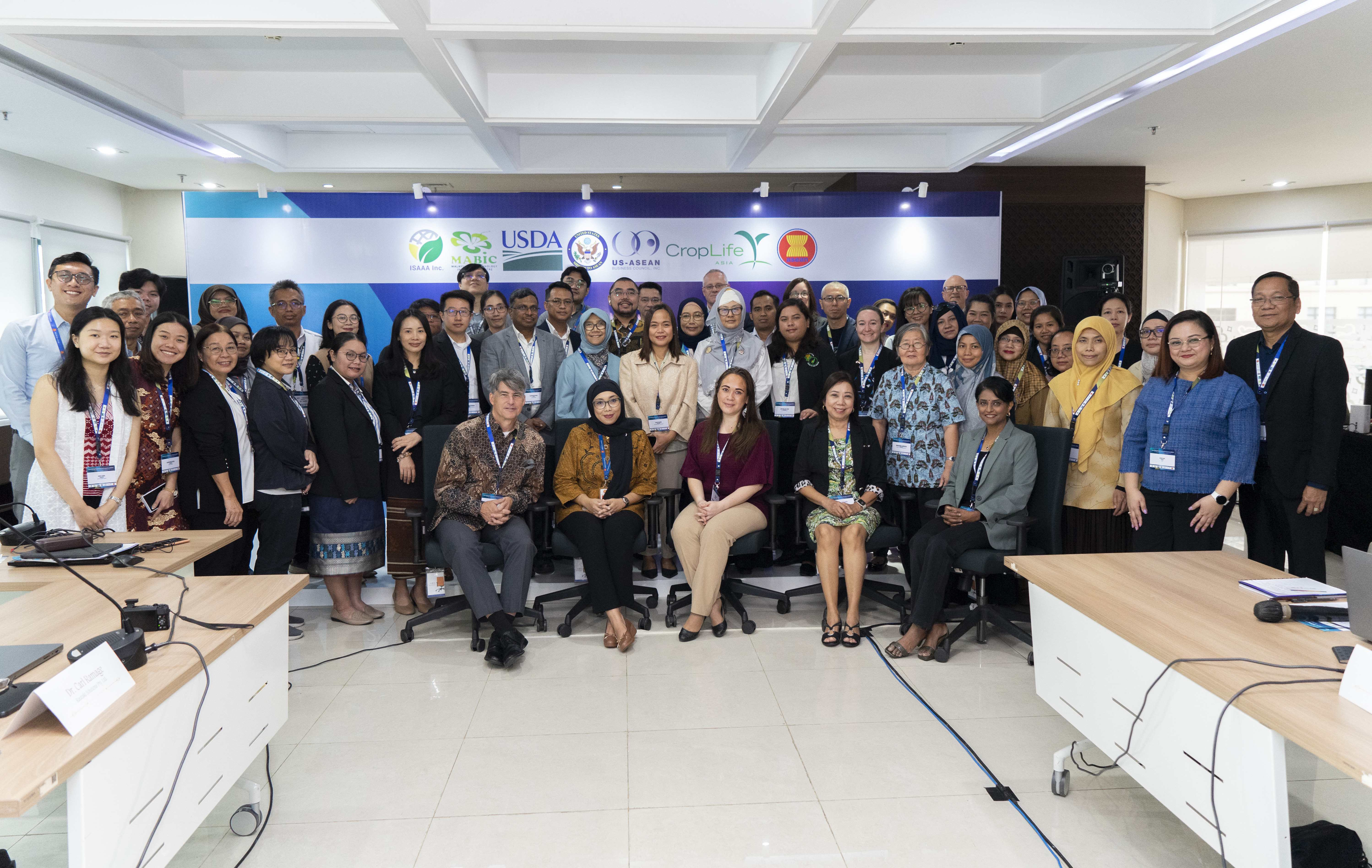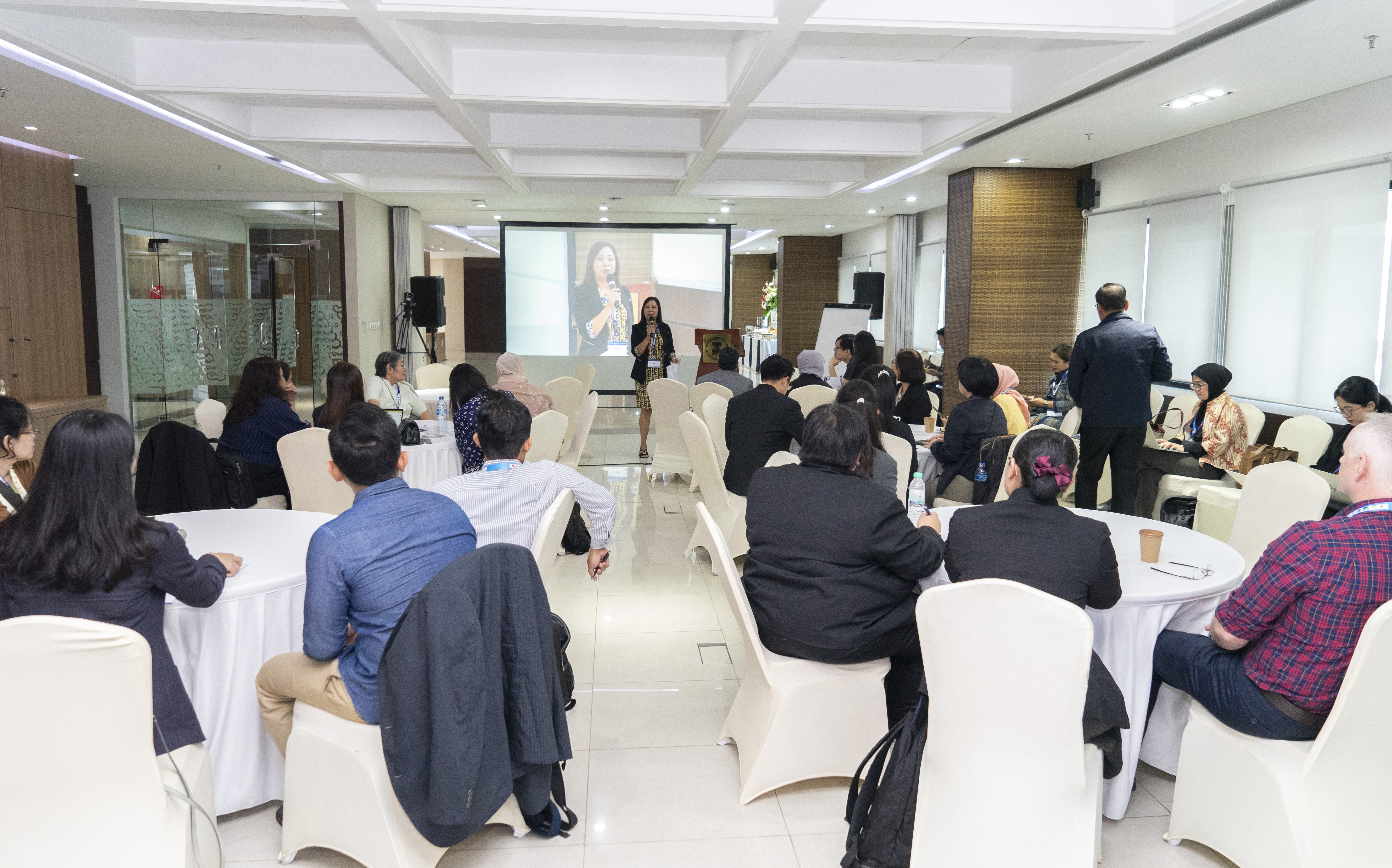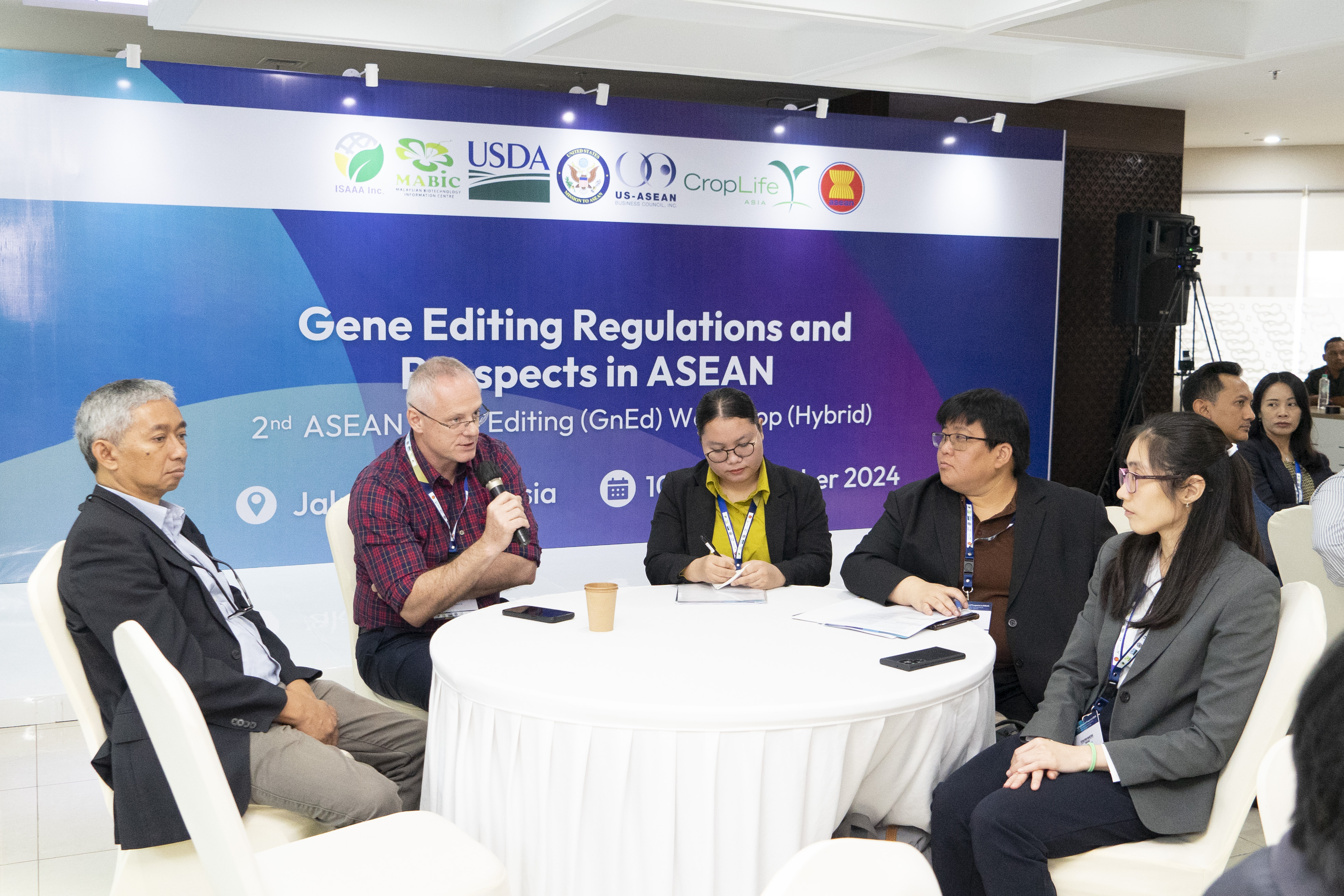ASEAN Member States Create Collective Effort to Gain Benefits of Gene Editing
| |
The Association of Southeast Asian Nations (ASEAN) is known for its efforts in community building through political and economic endeavors. With gene editing an emerging tool for boosting agricultural productivity and food security, ASEAN and partners have involved representatives from member states to harness the potential of gene editing for the region.
Role of ASEAN COSTI
The ASEAN’s mandate for cooperation in science and technology is stated in the ASEAN Declaration: ASEAN shall promote active collaboration and mutual assistance on matters of common interest in the economic, social, cultural, technical, scientific, and administrative fields and provide assistance to each other in the form of training and research facilities in the educational, professional, technical and administrative spheres. Thus, the ASEAN Committee on Science, Technology, and Innovation (COSTI) plays a crucial role in coordinating and guiding the subsidiary groups, ensuring that activities align with set objectives. It also fosters public awareness of regional S&T initiatives and their economic impacts, while overseeing the progress of collaboration with both ASEAN Dialogue Partners and other external entities. The policies for science and technology cooperation are set by the ASEAN Ministers for Science and Technology during their annual meetings.
One of the COSTI subcommittees is biotechnology, with agricultural biotechnology as one of the priority areas from 2016 to 2025. The subcommittee aims to carry out collaborative research on selected topics of the core projects in the priority areas, develop human resources, and form the ASEAN biotechnology information network.
In line with these objectives, the ASEAN COSTI and partners held a series of gene editing workshops at the ASEAN Secretariat headquarters in Jakarta, Indonesia.
Gene Editing Workshop
Gene editing is one of the emerging tools of biotechnology. It allows targeted changes in the DNA using the natural gene editing system of bacteria when faced with an invading pathogen. Scientists describe gene editing tools as “molecular scissors” that cut targeted locations in the DNA to produce a desired change in an organism. The most common tools of gene editing are CRISPR, TALENs, ZFNs, and meganucleases.
To tackle the policies and potentials of gene editing, the ASEAN COSTI organized a workshop and partnered with the U.S. Department of Agriculture (USDA), U.S. Mission to ASEAN, U.S.ASEAN Business Council, CropLife Asia, International Service for the Acquisition of Agri-biotech Applications, Inc. (ISAAA Inc.), and the Malaysian Biotechnology Information Centre (MABIC).
The workshop titled Gene Editing Regulations and Prospects in ASEAN was held on September 10-11, 2024, in Jakarta, attended by over 70 onsite and online participants from eight ASEAN countries. It served as a sequel to the first one held in March 2024.
The program included lectures and comprehensive discussions on the science, applications, and benefits of gene editing from experts. Resource speakers from Japan, Singapore, Australia, and Canada also shared their experiences in gene editing research and development and regulations. Updates on gene editing policy approaches since the first workshop were presented by participants from Thailand, Philippines, Indonesia, Vietnam, and Malaysia.
The participants were grouped to discuss the current status of gene editing in their countries and devise possible collaborations, points for harmonization, and action steps to advance gene editing in realizing its benefits to the ASEAN nations. The following recommendations were crafted based on the participants' inputs:
- Form a body tasked to coordinate gene editing technologies and regulatory matters in the region.
- Recognize regulatory decisions within the region and standardize trade regulations.
- Design and implement an ASEAN-wide training program on gene editing
- Organize sideline events on gene editing during ASEAN Ministerial meetings to further equip policymakers in the discussions.
The outcome of the workshop and the crafted recommendations will be forwarded to the ASEAN Ministers for Science and Technology and other relevant bodies for further discussion and action.
Prospects
Regional efforts to harmonize or align gene editing policies are key actions for gene-edited products to be available and useful to their target beneficiaries. For ASEAN, such efforts may also contribute toward a collective consciousness, described by experts from various scientific and social disciplines, as a form of oneness not just defined by geographical attributes, but also by ideology, culture, and systems. Once ASEAN reaches an alignment in recognizing the value and implementing regulations on gene editing, it is expected that support for the technology’s role in innovation and food security will rise. The efforts will ripple to contributing toward achieving national targets in food and agriculture, and at the same time moving forward as one region.
| Newer Post | Archive | Older Post |
Science Speaks is ISAAA Inc.'s official blog. Weekly blog articles, authored by ISAAA writers, partners, and invited contributors, aim to help share, disseminate, and promote scientific knowledge and its vital role in achieving global agricultural sustainability and development. Your support to Science Speaks will help us achieve this goal. You can help us by donating as little as $10.




